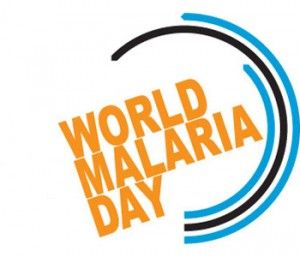
AITHM’s world leading researchers take aim at eradicating Malaria
The fight against malaria is one of the most inspiring global health stories of our time, and the Australian Institute of Tropical Health and Medicine (AITHM), is well poised to contribute to eradicating this disease.
Today, on World Malaria Day 2016, according to the World Health Organisation (WHO), half of the world’s population is at risk of contracting malaria, with the disease imposing a heavy burden in tropical regions, including Australia’s near neighbours.
Professor Louis Schofield, Director says, “AITHM is leading research towards eradicating malaria. With multiple world-leading malaria vaccine projects underway, further clinical trials are due to commence in August and several key recruitments in the past six month’s boosting an already talented research team.
“The malaria research projects currently being pursued by AITHM researchers in both Townsville and Cairns are breaking down the incredibly complex challenge of malaria and tackling the problem from all angles,” Professor Schofield said.
Following Bill & Melinda Gates Foundation funding success in 2015, pre-clinical work is already underway to improve the potency and efficacy of an experimental vaccine.
“There is an urgent need for a broadly effective vaccine to attack all strains, species and life stages of malaria.
“On the surface, this sounds simple, however, there are five malaria parasite species that infect humans, and the parasites are complex and hard to target. Some forms infect people though the bite of a mosquito; other forms proliferate in the blood and cause disease, and yet different forms are passed from human to mosquitoes to complete the cycle. Our prototype vaccine attempts to overcome these barriers by attacking most species and stages in the malaria life cycle,” Professor Schofield said.
A second malaria vaccine project, also led by Professor Louis Schofield, is due for human trials to commence in August. This project will generate critical data and validate the research is on the right track for future funding and improvements to the potency and efficacy of this experimental vaccine.
In addition to world leading vaccine trials, AITHM’s Professor Tom Burkot continues work in the field of entomology and understanding the mosquito vectors that transmit malaria and how best to control them.
“Our work on malaria transmission, defining the vector biology of the species and relevant control techniques are pivotal to eradicating malaria. By understanding the mosquito, we can exploit vulnerabilities in its lifecycle, therefore reducing the ability for it to transmit malaria.
“In order to successfully control malaria, we must understand the biology of the mosquito, the parasite, and the human host.
“Given the funding shortfall between the resources needed to control and eliminate malaria and what is presently available, it is critically important to build the evidence base for additional control measures that will complement insecticide treated nets and indoor residual spraying.
“Even with diminishing malaria cases, it remains critical to continue research to identify new effective interventions and treatments. We should not ignore the problem, malaria will only be eliminated if we carry these research efforts through to completion,” Professor Burkot said.
Further boosting AITHM’s research caliber, highly esteemed researchers Professor Denise Doolan and Professor Maxine Whittaker have joined the team.
“We’re delighted to welcome significant research talent to the AITHM team, to complement existing research capacity.
“Professor Denise Doolan, a molecular immunologist, investigates the basis of immunity to disease, with a focus on malaria vaccine development,” Professor Schofield said.
Echoing comments of WHO, Professor Louis Schofield called for continued commitments with the objective of defeating malaria.
“In a competitive environment, Professor Doolan has an investment-ready malaria vaccine project, ready for consideration. We find ourselves in an environment with limited funding, and unfortunately worthy projects find themselves shelved awaiting a funding partner.
“In order to develop new solutions to these global health problems, we must sustain investment, to ensure continued success against malaria. Australia has a duty of care to assist with eradicating this disease,” Professor Schofield said.
James Cook University also welcomed Professor Maxine Whittaker to the team in early 2016, further bolstering AITHM’s malaria research program.
Recognised as one of the leaders in re-invigorating social sciences and community participation in the malaria research agenda, Professor Louis Schofield added: “Professor Whittaker was one of two foundation Secretariat coordinators of the Asia Pacific Malaria Elimination Network and is actively involved in its transition and evolution to a regional co-location with the Asia Pacific Leaders Malaria Alliance, a tremendous asset to AITHM’s existing malaria research agenda”.
In addition, James Cook University was a foundation partner institution with this network, which brings together the country programs in the Asia-Pacific region committed to malaria elimination with the regional scientific institutions to collaboratively address the unique challenges of malaria elimination in the Asia Pacific through advocacy and leadership, building the evidence base, capacity building, and knowledge exchange for malaria elimination.
James Cook University is also a member institution of the International Centres of Excellence in Malaria Research funded by the US National Institutes of Health.
Collectively, AITHM’s malaria research program continues to grow and is already contributing to better health in the Tropics. Tackling the global malaria from several research fronts, AITHM research continues to assist in fighting one of the oldest and deadliest diseases.
ENDS
Contact:
Professor Louis Schofield
Director, Australian Institute of Tropical Health and Medicine
0433 771 148




